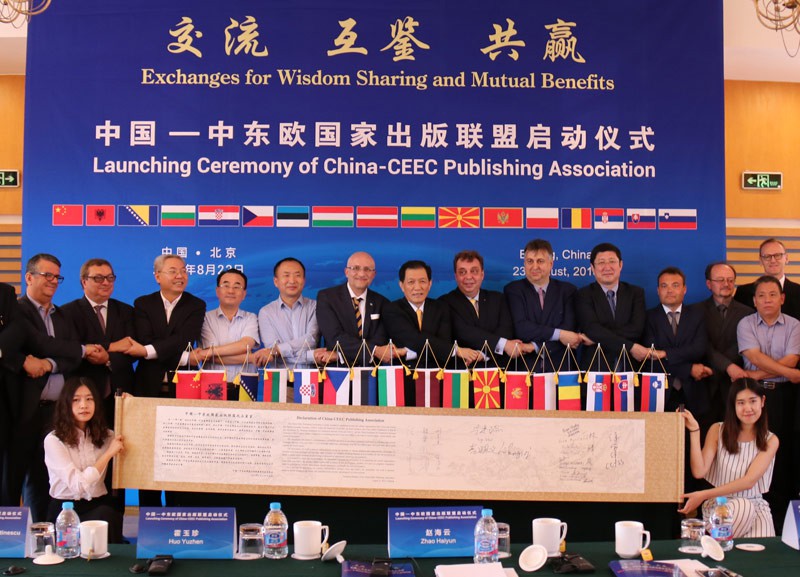It was a unique opportunity to experience firsthand what has become Asia’s largest book fair and to try to get a better understanding of the market, but also of Chinese culture and traditions. China’s rich cultural heritage dates back almost four thousand years, all the way back to the Shang dynasty.
Beijing is a modern and vibrant city, where the Chinese economic growth of the past 20 years is evident. The Beijing International Book Fair keeps growing, this year to expect 25,000 publishers from 93 countries, according to its director, Liying Lin, in an interview that appeared in Publishing Perspectives.
I was able to witness the presence of most of major international publishers and collective stands of a great number of countries, showing their latest editions while at the same time engaging in business discussions with their Chinese counterparts.
While China’s economy is still booming, its book market seems to continue expanding and the international book trade keeps growing, there are also some concerns, especially about freedom to publish.
Freedom to publish, one of IPA’s core values, has been under discussion for many years (and will continue to be) with our member, the Publishers Association of China, or PAC, since there are differences of opinion.
During my visit in Beijing, I enjoyed a series of very open and sincere conversations with our colleagues from the PAC leadership, with the aim of improving mutual understanding. I was able to understand the Chinese way of thinking a little better and at the same time I think I was able to explain how IPA works and why freedom to publish is so dear to IPA.
Both associations know we have many things in common as publishers and that there are immense business opportunities for publishers, while at the same time we have to deal with some differences of opinion. In a recent article entitled “Freedom to publish – the spectrum and the challenge of international action”, published on IPA’s webpage
Kristenn Einarsson, chair of IPA’s Freedom to Publish committee said that: “Freedom to publish means that publishers must be allowed to publish all that they deem worthy of publication, even and perhaps especially if those works challenge the boundaries established by the society they operate in.”
On the other hand, the PAC expressed their own views: “Between nations there are differences in cultural traditions and social systems. Therefore, different countries have their own concerns as far as the issue of freedom to publish is concerned.”
In this scenario, dialogue has been a priority for President Michiel Kolman and I fully agree with him. The animal rights activist Jane Goodall said that “change happens by listening and then starting a dialogue with the people who are doing something you don’t believe is right.”
I am convinced we can bridge our differences and strengthen the cooperation between IPA and PAC, but to do so, maintaining the dialogue is of the essence.

